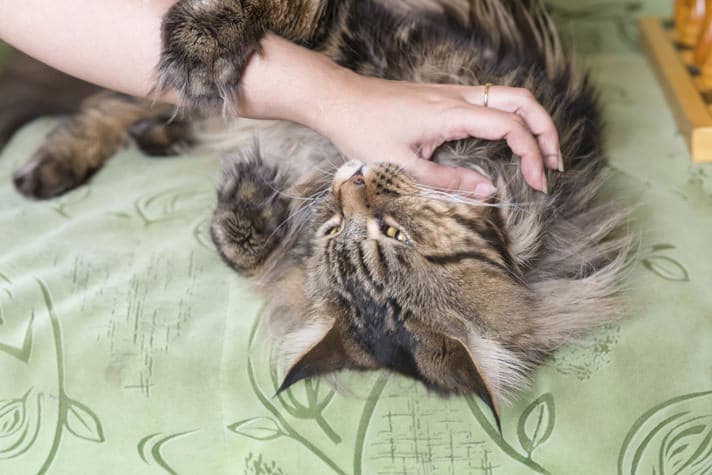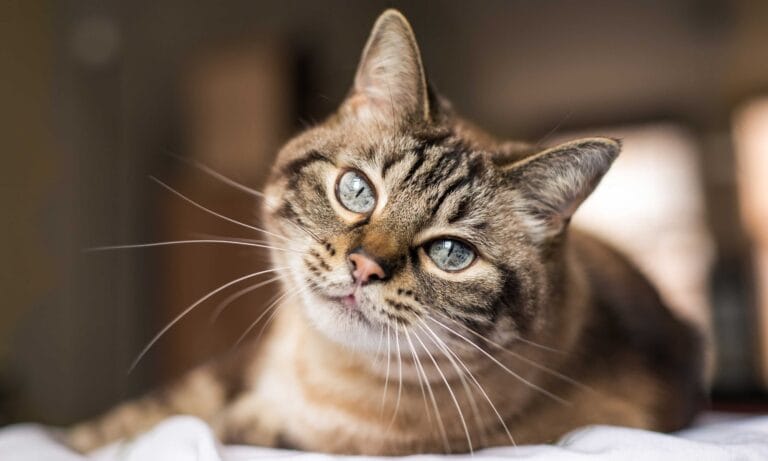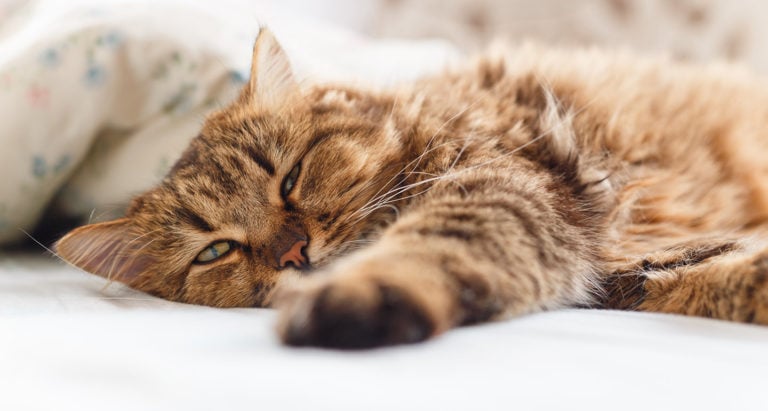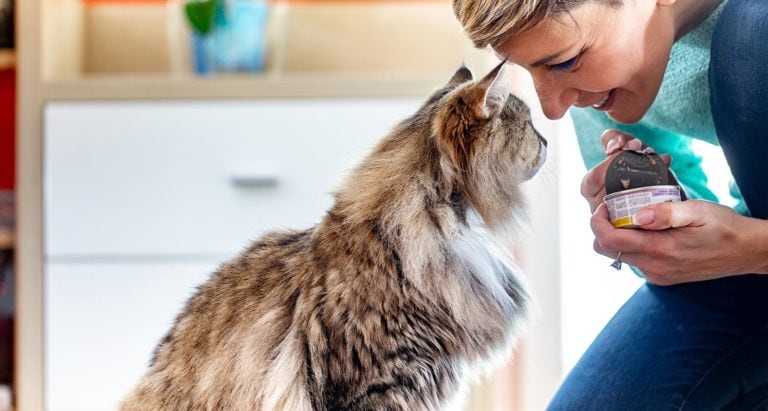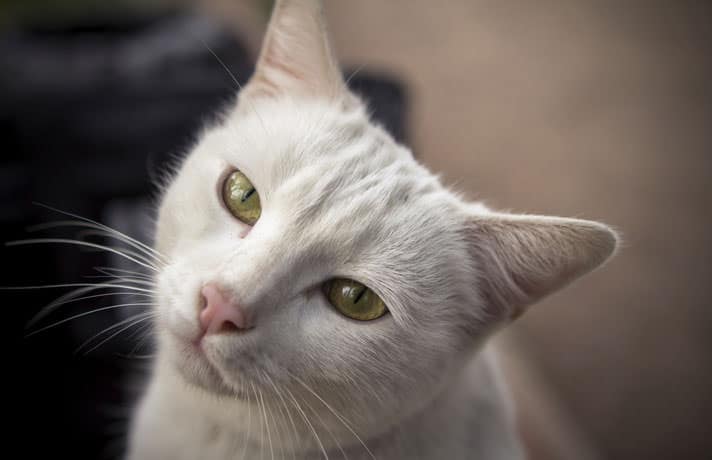Oftentimes, people accidentally teach their cat aggression when they unknowingly reward bad behavior. For instance, if you cut short the grooming when your senior cat hisses, Kitty subsequently “generalizes” the lesson and uses a hiss or bite to control other interactions. Owners who act anxious or threatening in the cat’s presence further aggravate feline aggression.
Recognizing potential triggers and understanding the warning signs of aggression will help you to avoid or diffuse the situation. Common scenarios in which your senior cat may react with aggression include:
- When feeling pain
- When a deaf or blind cat is startled
- When approached/disturbed while resting
- When overcrowded by too many cats for the space
- When protecting resources (bed, territory, kittens)
- When physically and/or verbally disciplined
- When forced to make prolonged eye contact
- When experiencing unwelcome handling (being held, petted, lifted)
- When restrained or forced into unwelcome positions
- When hearing certain music frequencies or high-pitched sounds (e.g., baby crying, violin playing)
- When your senior cat bites, ask yourself these questions: Did you pick her up when she warned you away, with ear and tail language, because she’s scared? Does she have a sore place you accidentally hurt? Or is it just normal kitten-like play?
Health Issues Affect Behavior
Health problems can cause a once-sweet cat to react with aggression.
Many senior cats suffer from conditions associated with chronic pain, such as dental disease, osteoarthritis, interstitial cystitis and cancer. The incidence of these painful conditions is more common than we once thought, particularly in older cats. Typically, cats simply hide and stop moving when in pain, and they become very good at hiding any discomfort.
Changes in a cat’s thyroid hormone production can prompt changes in behavior, especially aggression. Bonnie Beaver, DVM, a professor of animal behavior at Texas A&M University, characterizes hyperthyroid aggression as “nasty,” and hypothyroid aggressive cats as “grumpy” and “short tempered.”
A routine blood test screening for thyroid function, especially in middle aged to older cats, diagnoses this treatable condition.
As cats get older, they may start to lose their senses.
Loss of hearing means previously attentive cats seem to ignore you. Your senior cat may also startle more easily, so you’ll need to explain to visitors and family members not to sneak up on her, or she might hiss or bite out of fear without meaning to. Some hearing-impaired cats begin meowing a lot more — they can’t hear themselves, or you, and so use their “alarm cry” to get attention. You’ll also learn to stomp a foot, wave your hand or use other visual signals to gain her attention.
Cats readily learn hand signals in lieu of voice directions, and adjust so quickly to dimming senses that you may not know if anything is different at all. For instance, instead of calling “Here, Kitty Kitty” at mealtime around the cat food bowl, cats quickly learn that the kitchen light being switched on and off at the appropriate time means dinner is served, and come running.
Senior cats may also lose their vision, which can lead to biting.
“Usually you’ll see vision loss in an unfamiliar environment,” says Paul Gerding, DVM, an adjunct clinical associate professor of veterinary clinical medicine (ophthalmology) at University of Illinois. “They’ll have memorized their own home or yard if they’ve been there the last five to 10 years.”
Symptoms of vision loss are therefore noticed more in an unfamiliar environment.
“Cats to tend to become a little more withdrawn if they lose their vision,” Gerding says.
Look for these signs:
- The cat hides, and her activity level decreases.
- She shows reluctance to navigate stairs or jumps, especially in unfamiliar places.
- The cat becomes clingy.
- She bites when touched unexpectedly.
Ultimately, understanding why your senior cat is biting will help you prevent the biting in the first place. Get more tips on how to stop a cat from biting.
By: Amy Shojai
Featured Image: Via iStock/Argument
Share:
